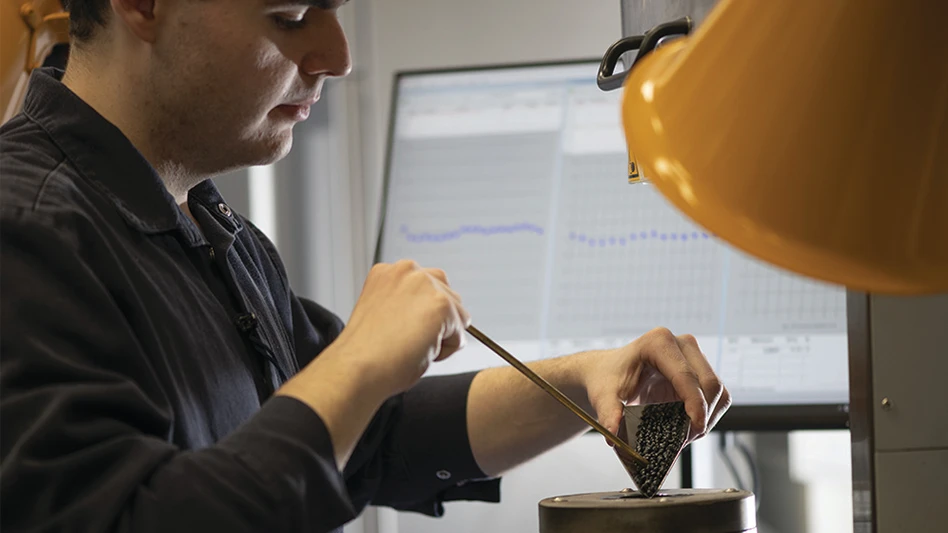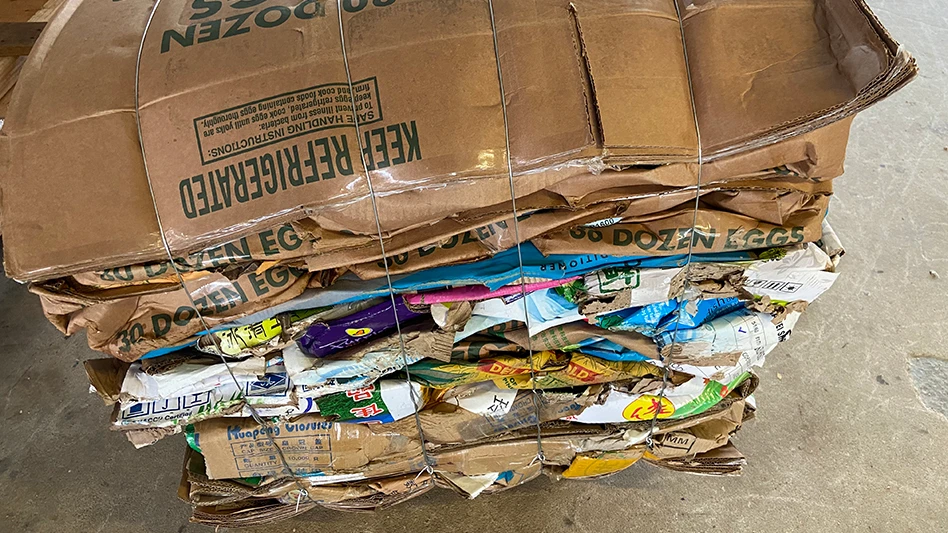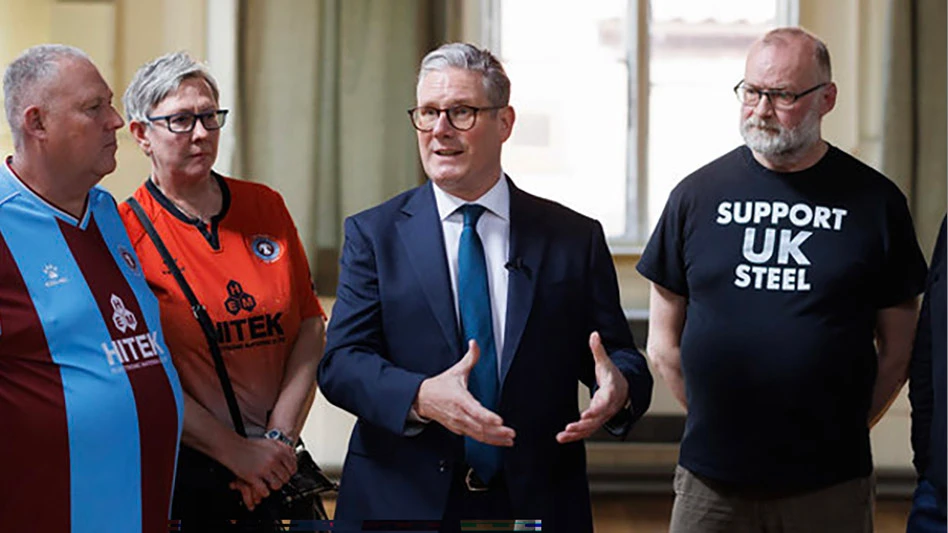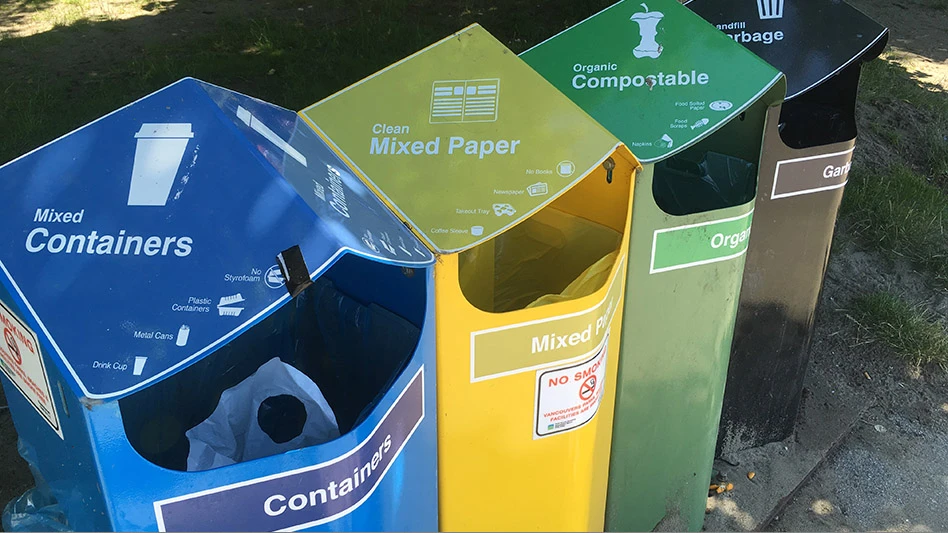
Our State of the Scrap Recycling Industry Roundtable panelists span a geographic and age spectrum that provides a diverse range of viewpoints on where the industry could be headed.

After the turbulence and low scrap volumes of the first half of 2020, optimism for the future is almost a necessity. Asking the panelists how the industry recovers, and where it might best pursue opportunities in the remainder of the decade helped demonstrate some of the diverse vantage points.
Panelists also weighed in on the future of the auto shredder, which is facing regulatory scrutiny but remains a processing method of choice for many scrap processors.
Chad Olgin of Olgin + Efune Recycling Co., Phoenix, said, “Now that we’re facing a shortage in scrap metal for automobile shredders, I think you’re going to see a restructuring of how the people who are running these shredders, especially the largest shredders, operate. I think you’re going to see people changing who’s running it and how they are running it and focusing more on where they’re efficient and trying to source scrap that isn’t going to cost them a ton of money, which is very hard to find right now,” he said. “I think the time is right for everybody to try and figure out the best way to run their machines very, very differently.”
Olgin said many scrap yards installed shredders over the last two decades. “I think people were trying to follow what other people were doing.”

Now, the success of these operators depends on how they can expand their downstream operations, he added. “Those will be the people who survive and make it through this.”
“People over-complicate shredding,” Kevin Gershowitz of Gershow Recycling, Medford, New York, said. “The biggest problem that companies have if they’re not making money at their shredders is not how good of an operator they are.”
Instead, he said, shredder operators’ success hinges on what they pay for their raw materials.
Gershowitz added, “The worst seller in the world is going to leave that much money per ton on the table when they’re selling their zorba or their shredded steel. What are you going to give up, a penny per pound? A couple of bucks a ton? It’s all made on the buy side, which is, as I said before, why we always seem to have a company or a group of companies that, regardless of what the spreadsheet says, regardless of what you think the intrinsic value of the automobile or appliance is, we all have that group of shredders that just seems to be overpaying because they want the volume.”
He also said he saw problems coming for shredder operators in the form of environmental regulations. “The big kick now with [the] EPA (Environmental Protection Agency) on a nationwide basis is volatile organic compounds (VOCs), which are emitted at shredders. Basically, as you shred the car, there’s some residual oil left in the engine; it goes into the shredder, and the shredder doesn’t get hot enough to actually burn it and destroy it, but it gets hot enough to create fumes. And the fumes get hot enough to become VOCs that go in the atmosphere.”
He said Gershow Recycling has been selected by the EPA for emissions testing on its shredders, adding that “the writing is on the wall in terms of the requirements [for a thermal oxidizer].”
This type of scrutiny creates operational and competitive issues, Gershowitz said. “I’m in a nonattainment air quality region, along with other large cities like Boston or Chicago. My friend Ben [Abrams of Consolidated Scrap Resources] is not, and yet, we have a circular radius that we can compete with each other. If I have an operating cost of $8 to $10 higher per ton for these new environmental controls, and he and others do not, we’re going to see scrap cross some county and state lines to the lower cost operator. This will be based on the implementation of controls that is not uniform around the country, even though it’s a nationwide effort by EPA. It’s a snipering of areas and cities that are considered lower air quality.” He added, “I see this creating real problems on the competitive side and operationally.”
More generally, the roundtable participants noted their challenges with assuring employees that their companies have their best interests in mind, the economy and complacency.

Matt Kripke of Kripke Enterprises Inc., Toledo, Ohio, said, “I’ve been talking to a lot of friends who are struggling getting their people back to work. There are people that are fearful.”
He thinks the biggest issue for the industry in the year ahead is making employees feel safe, but that extends beyond the pandemic concerns. “[D]o they feel you have their best interest in mind?”
“To me it comes down to relationships, both with your customers and your team,” Jeremy Miller, chief financial officer and quality, environmental, health and safety manager, Wm. Miller Iron & Metal, Winona, Minnesota, added. “I think it’s incredibly important to take care of employees.”
Wm. Miller Iron & Metal offers ferrous and nonferrous scrap processing, nonferrous scrap brokerage and electronics recycling. It also owns and operates a solid waste transfer station and a construction and demolition (C&D) materials transfer station and provides C&D recycling.
Miller said nurturing relationships with employees, suppliers and customers will be important. “We can gain business and increase customers and suppliers by developing and maintaining those relationships and just treating others with respect and honesty. That’s what we’ve been doing for 100 years-plus here, and it has worked out pretty well. I think it’s going to be even more important moving forward to be respectful and, certainly, honest and straightforward with your employees and your customers.”
Ben Abrams, president and CEO of Consolidated Scrap Resources (CSR), York, Pennsylvania, said his fellow panelists will need to “be at the top of your game” by figuring out “what works for your company, whether it’s workforce size, workforce structuring in terms of hours, who you’re bringing on and what kind of products you’re getting yourselves into, what kind of investments you may or may not make.”
”The biggest problem that companies have if they’re not making money at their shredders is not how good of an operator they are. ... It’s all made on the buy side.” – Kevin Gershowitz, president, Gershow Recycling
CSR operates six yards in central Pennsylvania and was formed by the merger of B. Abrams & Sons Inc. and L. Lavetan and Sons Inc. in 1999. The company operates an auto shredder and a downstream recovery system.

“I think the next couple of years are going to be tough with somewhat stable pricing that is the result of weaker scrap flows,” he said. “It’s going to change as the U.S. economy and the global economies try to get back into a rhythm and some growth. That’s a big unknown, so you have to figure out what works for you and go forth and do that. But I think you’re going to have some challenging economic times over the next few years before it gets good again.”
Olgin also advocated for taking a focused approach in business. “I think it’s going to [entail] buckling down and focusing on what we all do best. I think that will be where we see some positive growth in our industry over the next couple of months.”
”I think it’s going to be even more important moving forward to be respectful and, certainly, honest and straightforward with your employees and your customers.” – Jeremy Miller, chief financial officer and quality, environmental, health and safety manager, Wm. Miller Iron & Metal
But he also stressed that focusing on what a company does best should not result in complacency. “I think the biggest challenge we’re facing right now is complacency,” Olgin said. “But I think that as long as your management team is willing to not be complacent, and the spirit of the entrepreneur is ever-changing and realistically proactive and reactive to all this COVID stuff happening, I could see that it could be very positive.”

Explore the September 2020 State of the Industry Issue
Check out more from this issue and find your next story to read.
Latest from Recycling Today
- Commentary: How EPR is transforming the packaging industry
- Acerinox names new North American Stainless CEO
- Greenwave closes 2024 books with red ink
- Steel Dynamics nets $217M on record shipments
- Massive Chinese steelmaking rebound recorded in March
- LME looks into sustainable metal pricing
- OnePlanet Solar Recycling closes $7M seed financing round
- AMCS launches AMCS Platform Spring 2025 update






